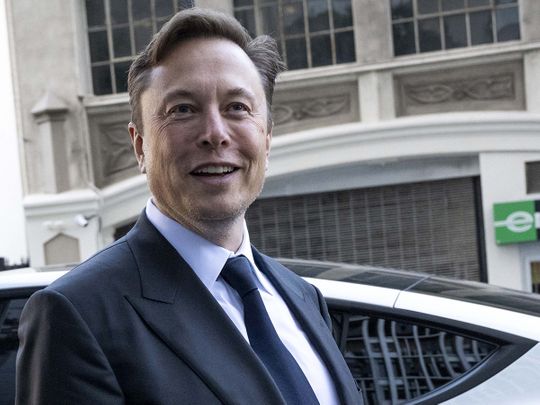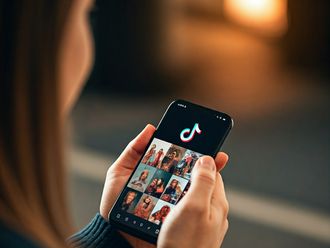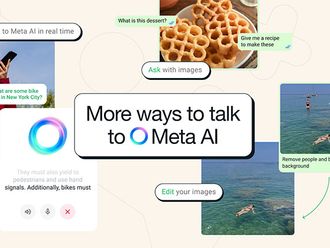
San Francisco: Nearly six months into his ownership of Twitter, Elon Musk says he's been sleeping on a couch inside a seventh-floor library of the company he bought for $44 billion, which is being run by his dog.
The Twitter CEO - or rather, its leader (Musk said Twitter's current CEO is actually Floki, his dog) - addressed a range of topics in a spontaneous interview Tuesday night on the site, and he unloaded on the interviewer over questions about the alleged increase in misinformation since he took over. Musk also addressed his frequent Twitter controversies, allegations of a family-owned emerald mine (which he declared false) and lessons learned from his first six months in charge of the website.
Many have predicted Twitter will cease to function. Their predictions have not come true. ... We're literally on Twitter now.
Twitter has been vastly transformed under Musk, who is also CEO of Tesla, as the world's second-richest person has ushered in policies maximizing his view of "free speech" while laying off thousands of staffers, aggressively cutting costs and experimenting with little regard for whether his changes might break the site. Twitter has leaned into a subscription model under Musk, offering its signature blue "verified" check marks to anyone willing to pay $8, and eliminated many of the content moderation safeguards aimed at impersonators and those trafficking in misinformation.
But Musk hailed many of the changes he has made since buying the company in October and laying off more than two-thirds of the staff in the ensuing weeks. The layoffs, he said, were "not fun at all ... painful." Musk said Twitter is down to about 1,500 staffers, from more than 7,000. Musk also acknowledged problems, such as shutting down a Twitter data center in December, leading to troubles with the company's servers.
"It was quite catastrophic," Musk said, and Twitter rushed to restore it.
He touted Twitter's open sourcing of its recommendation algorithm, the site's emphasis on video and its resilience in the face of vast transformation. He said Twitter is breaking roughly even from a financial standpoint, advertisers were returning to the site, and Twitter usage and growth are satisfactory.
"Many have predicted Twitter will cease to function," Musk said. "Their predictions have not come true. ... We're literally on Twitter now."
read more
- Twitter company ‘no longer exists,’ is now part of Musk’s X
- Musk says Twitter is roughly breaking even, has 1,500 employees
- Twitter working on AI despite Elon Musk call for global pause
- Elon Musk sees a $4 trillion cost to stick with fossil fuels
- Elon Musk's Starship: Biggest rocket ever set to take epic orbital test flight, what you need to know
BBC interview
The billionaire made the comments in an interview with the BBC on Tuesday night over the company's live audio feature, Twitter Spaces. In the interview, Musk said Twitter would tweak a new label it has added to accounts including NPR and the BBC referring to them as state-affiliated media - highlighting instead their reliance on public funding.
But Musk also contested that misinformation and hate speech were more prevalent on the site, after the journalist was unable to name a specific example of the phenomenon.
"You said you see more hateful content, but you can't even name a single one," Musk said, his tone growing agitated. "You just lied!"
The two continued in a back-and-forth.
"Give me one example! You literally can't name one," he said. "You literally said you experience more hateful content and then couldn't name a single example, that's absurd."
The Washington Post reported last month that Twitter was amplifying hate speech in its "For You" page, the curated timeline where it recommends posts to users based on their interests. A Post analysis showed that accounts following those designated "extremist" or "extremist-associated" were subjected to hate-promoting tweets, including a tweet with a quote and portrait of Adolf Hitler.
Topic shifted to covid
"Covid is no longer an issue," Musk said.
As the interview went on, Musk - who appeared in a jovial mood - repeatedly made jokes, including innuendo about Twitter's name and the idea of his dog running the company.
One of Musk's most criticized moves came in December when Twitter adopted a policy banning the promotion of certain outside social media platforms. Musk, in response to fierce backlash, launched a poll on whether he should step down as CEO.
After users in the nonscientific Twitter poll declared he should, he said he had abided by that pledge (because his dog is in charge.)
"I did stand down," he said. "I keep telling you I'm not the CEO of Twitter, my dog is the CEO of Twitter."
"I said I would appoint a new CEO, and I did, and it's my dog," he said later.
Musk faced renewed backlash this month after Twitter restricted engagement on tweets linking to the newsletter site Substack, after it announced a feature that resembled a Twitter clone in appearance.
Musk, in the interview Tuesday, also laid out his rules for avoiding Twitter controversies.
He said he probably shoudn't tweet after 2 or 3 a.m. And he acknowledged the controversies his tweets have invited.
"Have I shot myself in the foot with tweets multiple times?" he asked. "Yeah. I need bullet-proof shoes at this point."
Musk said Twitter had sought to turn one of its buildings, which is now vacant, into a homeless shelter but was turned down by the property manager of Twitter's San Francisco office.
Meanwhile, Musk appeared to confirm a news report that Twitter was accumulating powerful computing hardware to pursue generative artificial intelligence, the field that has developed large language models such as ChatGPT.
Musk, who also banned a Twitter account tracking his private jet during a spate of controversies in December, denied using Twitter's platform to make decisions benefiting himself.
He reserved some of his harshest criticism for those who predicted Twitter's demise.
Ultimately, he said, "they were wrong."






_resources1_16a30b3fb8b_small.jpg)




